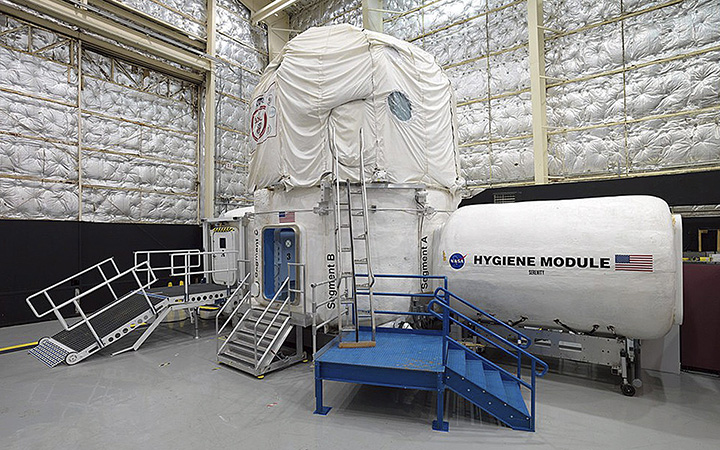GROTON, Conn. – As NASA contemplates a manned voyage to Mars and the effects missions deeper into space could have on astronauts, it’s tapping research from another outfit with experience sending people to the deep: the U.S. Navy submarine force.

The space agency is working with a military laboratory at the submarine base in Groton, Connecticut, to measure how teams cope with stress during month-long simulations of space flight.
While one travels through outer space and the other the ocean’s depths, astronauts and submariners face many of the same challenges. Isolated for long stretches of time, they rely on crewmates for their lives in remote, inhospitable environments.

Get breaking National news
READ MORE: Life on Mars? NASA says planet appears to have flowing water
“We have a shared interest with the Navy in team resilience,” Brandon Vessey, a scientist with NASA’s human research program, told The Associated Press. “When you stick people together for a long period of time, how are they going to do?”
The Navy research that piqued NASA’s interest started about five years ago when the Groton-based Naval Submarine Medical Research Laboratory, at the request of the submarine force, began examining ways to make tactical teams work together better.
Through observation of submarine crews, the Navy scientists developed a way to evaluate how teams are performing. The study singled out important team practices including dialogue, critical thinking and decision-making and developed a way to assess how teams respond to setbacks. The research was made available more than a year ago to submarines’ commanding officers, but it has not yet been institutionalized by the Navy.







Comments
Want to discuss? Please read our Commenting Policy first.